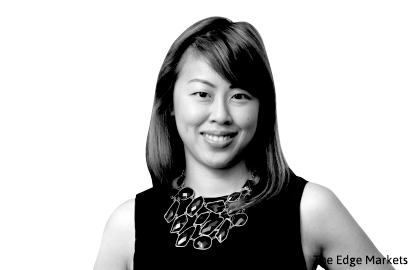
Many of us don’t realise that we have a problem until it is too late. I am in my late thirties and I do not consider myself the picture of health. I do not exercise at all. I do not drink as much water as I should. I detest vegetables. At the grocer, I am more likely to reach for that bag of potato chips than fresh fruit. And I have never had a full body check-up. Ever. (Nope, I am not proud of this.)
People gasp in horror when they hear about my less-than-healthy lifestyle. Fortunately for me, I have no chronic illnesses (yet) or major health issues (so far). And when I hear those voices of dissent, I roll my eyes and wonder what the fuss is all about. Older people, like my parents, tell me all the time that I will regret not taking care of myself while I am young.
It is funny that when you are not at death’s door, you don’t see the problem. There is no immediacy. We don’t see the threat. And it takes years of neglect before we experience the negative impact on our health. By then, the damage is irreversible. We probably already know this. Well, I do. But that isn’t going to make me drink two litres of water a day. And I have a serious problem remembering to drink water.
Two litres of water a day works out to about six sips of water per hour. Not a gargantuan challenge. But how easy it is to forget when you are busy at work. Not only is it hard to remember, there are heaps of other liquid choices competing with water. And never mind that water is free.
That is pretty much the same excuse for why it is never time to start planning for our retirement — especially for those who have just joined the workforce. When they are young, there are not so many demands on their money. There is no mortgage to pay yet and no children to suck up the money. But talk to them about retirement and you get a glazed look. They are probably thinking, “Retirement? Like when we stop working? But I have just started!” They have time— or so they think.
With the power of compounding, it takes just a RM55-per-month investment in something that yields a 5% return for you to achieve a nest egg of RM1 million in 40 years. So, socking away just 5% of your salary starting in your twenties can make a world of difference in 40 years. But how easy it is to forget all that when you are busy finding your way in the world of grown-ups. Not only is it hard to remember, there are also heaps of other things competing with your retirement plan. Sound familiar?
When it comes to these problems, whether health, fitness or money, it is easy to ignore the problem and pretend they don’t exist. Or we simply put them off. Or we believe in miracles and that the problem will take care of itself. Or that the problem could never happen to you.
Or we can make the tough choices. We can choose to take the best possible action for ourselves — today and in the future. Can we sacrifice something today so that we can be better off in the future? This won’t be the most popular choice you will make.
Need to go somewhere more than a block away? Grab the car keys. Need that caffeine fix? Grab a take-away cappuccino. Bored at home? Head for the mall or take a bunch of friends out for a drink. Need the latest electronic gadget? Whip out your card on the pretence of earning some points.
But keep your five-year-old car for another two years? Immediately, a couple of excuses of why you can’t do so and why you must buy a brand-new car come to mind.
For the most part, we seem satisfied telling ourselves that it just isn’t possible to make any cutbacks or sacrifices now. For the most part, getting fit, saving more or, in my case, drinking more water, fall into this category of ignoring personal reality. Given that many people are in the same boat, it is even easier to reinforce this perceived truth.
But it is not about anyone else. Yes, most people find it perfectly fine to take a loan to buy a car that, by the way, only depreciates over time. Or to take that holiday on credit because, after all, who doesn’t need a break from the hustle and bustle of life. But just because most people do it, does not make it okay. And because it is not a problem now, it is still not okay. And it definitely does not make the consequences less painful just because we are not alone.
To make the best choice for ourselves, we must be mindful not to look at everybody else. We need to be open to the best choice, unpopular though it may be. So, the next time we hear that “Malaysians aren’t eating healthy enough” or “Malaysians are taking on too much debt”, perhaps we should take a long hard look in the mirror. And then, maybe, a drink of water.
Ong Shi Jie (CJ) is head of integrated marketing and analytics at OCBC Bank (M) Bhd
Save by subscribing to us for your print and/or digital copy.
P/S: The Edge is also available on Apple's AppStore and Androids' Google Play.